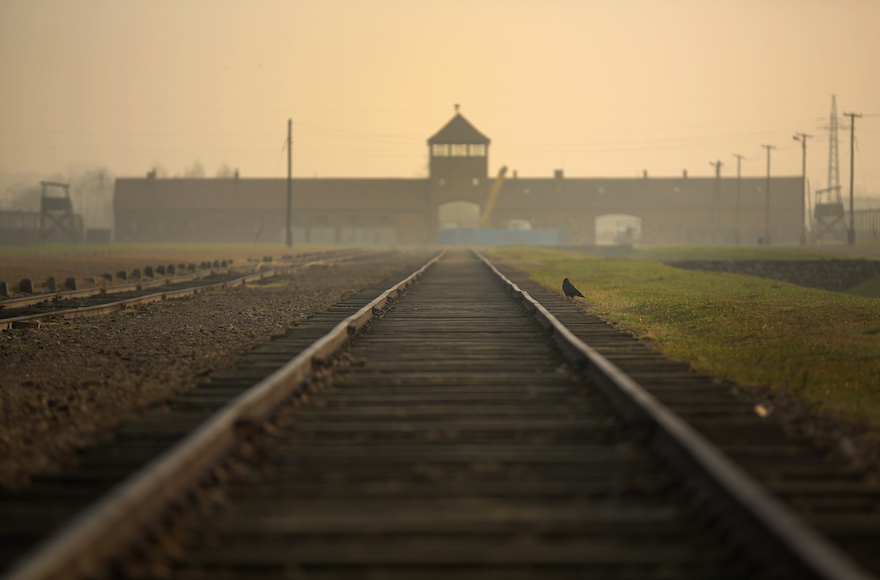
The railway track leading to the infamous “Death Gate” at the Auschwitz II Birkenau extermination camp in Poland, Nov. 13, 2014. (Christopher Furlong/Getty Images)
(JTA) — Imre Kertesz, a Holocaust survivor who won the Nobel Prize for Literature, has died.
Kertesz, who portrayed the horrors of Auschwitz in some of his writings, died Thursday at his Budapest home, said his publisher, the Magyeto Kiado firm. He was 86 and reportedly suffered from Parkinson’s disease.
Kertesz was deported from his native Budapest to Auschwitz in 1944 at the age of 14, and was transferred the following year to Buchenwald, where he was liberated in 1945.
He returned to Budapest after the war and worked as a journalist, but lost his job in 1951 when the newspaper adopted the Communist Party line. He later moved to Berlin, where he remained until recent years. Upon his return to Budapest, he reportedly rarely left his home.
Kertesz was the first Hungarian to receive the Nobel for literature, which was awarded to him in 2002.
Among his words are “Fateless,” “Fatelessness,” Kaddish for an Unborn Child” and “Fiasco.” “Fateless” was incorporated into Hungary’s high school curriculum.
The Swedish Academy said in its announcement of the 2002 prize that Kertesz won “for writing that upholds the fragile experience of the individual against the barbaric arbitrariness of history.”
“In his writing Imre Kertesz explores the possibility of continuing to live and think as an individual in an era in which the subjection of human beings to social forces has become increasingly complete,” the committee wrote. “His works return unremittingly to the decisive event in his life: the period spent in Auschwitz, to which he was taken as a teenage boy during the Nazi persecution of Hungary’s Jews.
“For him Auschwitz is not an exceptional occurrence that like an alien body subsists outside the normal history of Western Europe. It is the ultimate truth about human degradation in modern existence.”

Help ensure Jewish news remains accessible to all. Your donation to the Jewish Telegraphic Agency powers the trusted journalism that has connected Jewish communities worldwide for more than 100 years. With your help, JTA can continue to deliver vital news and insights. Donate today.






